Long-tailed Ducks At Bluffer’s Park
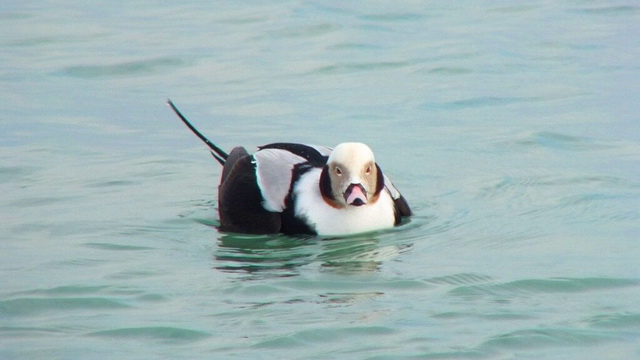
Our trip to British Columbia had been a birdwatcher’s delight, but once back in Ontario, it didn’t take us long to go on the hunt for new bird species in our own neck of the woods. A trip to Bluffer’s Park along the edge of Lake Ontario turned up some impressive Long-tailed Ducks).
We had chosen a bright sunny day to explore this park for the first time, but the strong winds sweeping across Lake Ontario from the west put an end to any warmth from the sunshine.
Evidence of the Arctic vortex that held the region in its grip could be seen everywhere in the ice-glazed snowbanks at the water’s edge and the proliferation of icicles hanging off of the rocky shoreline.
In fact, a shelf of thick ice projected out over the water for a good distance of 10-15 feet (3-4.5 m), but we weren’t daring enough to test its strength. The winter of 2014 was going down in history for having one of the longest cold spells and consistent sub-zero temperatures in recent decades.
Remains of the recent ice storm that brought Toronto to a standstill had all surfaces glare and slippery, so Bob and I trod very carefully as we approached the edge of the Lake. When two Long-tailed Ducks came into view, we were thrilled. They are such unique looking ducks and very striking in their winter plumage.
These boldly patterned ducks were previously known as Oldsquaw, a name that lost favour because of its potential to offend Native Americans. The original name was derived from local lore and referred to the bird’s talkative habits. Owing to the male’s reiterated yodeling call, these ducks were also fondly referred to as Noisy Ducks or Old Wives.
These distinctive sea ducks have short bills and heavy bodies, and both the male and female of the species have short, pointed, black wings in all plumages. Their plumage varies significantly from summer to winter, breeding to non-breeding. Here, we see a female in non-breeding winter plumage. The hens lack the long tail feathers of the drakes.
The drake’s plumage is primarily black and white in all seasons, but in the summer, the male becomes mainly black. The male seen above is in non-breeding winter plumage. The tail of a male Long-tailed Duck is long and pointed owing to the long, slender central tail feathers. The bill of a drake is dark grey with a pink band across the middle.
Tucked in behind a small peninsula that jutted into Lake Ontario, the Long-tailed Ducks were able to remain sheltered from the brutal winds and take their ease in fairly calm water. As they bobbed on the surface, Bob and I had to chuckle. It looked like the male duck was wearing earmuffs, but it was only me bundled up against the onslaught of gusty westerlies that day. The ducks just glided by unfazed by the polar temperatures.
Frame To Frame – Bob and Jean

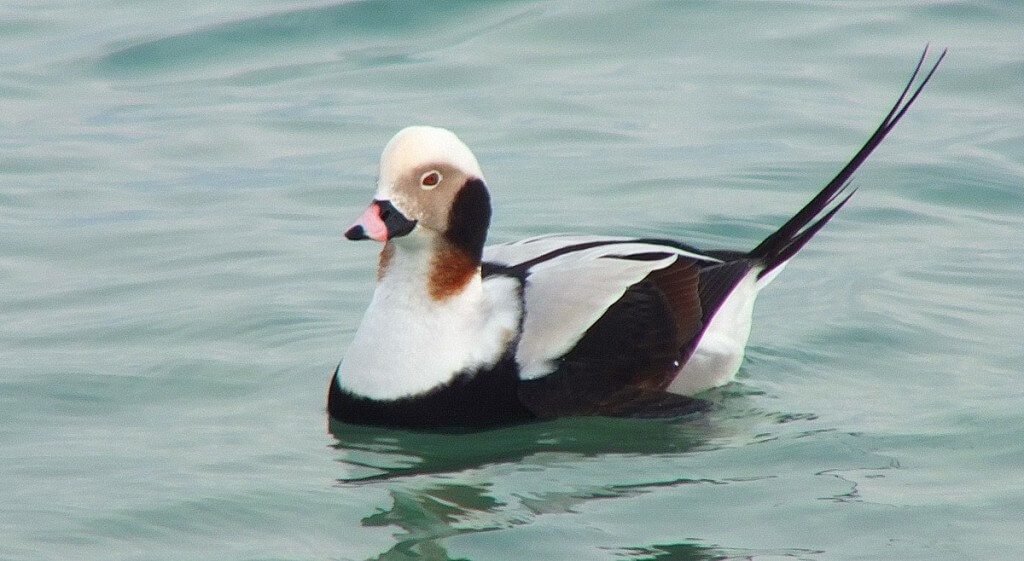
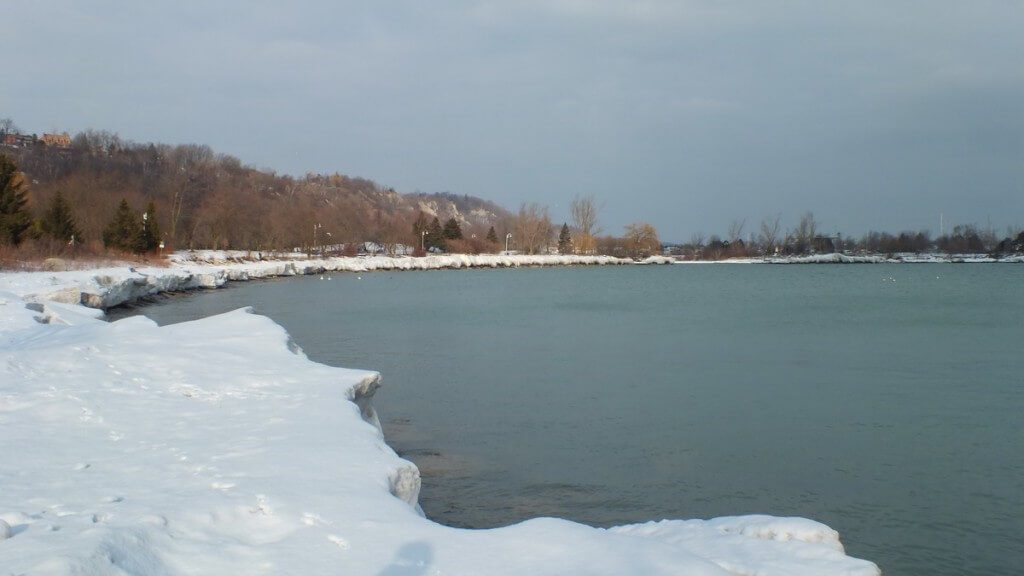
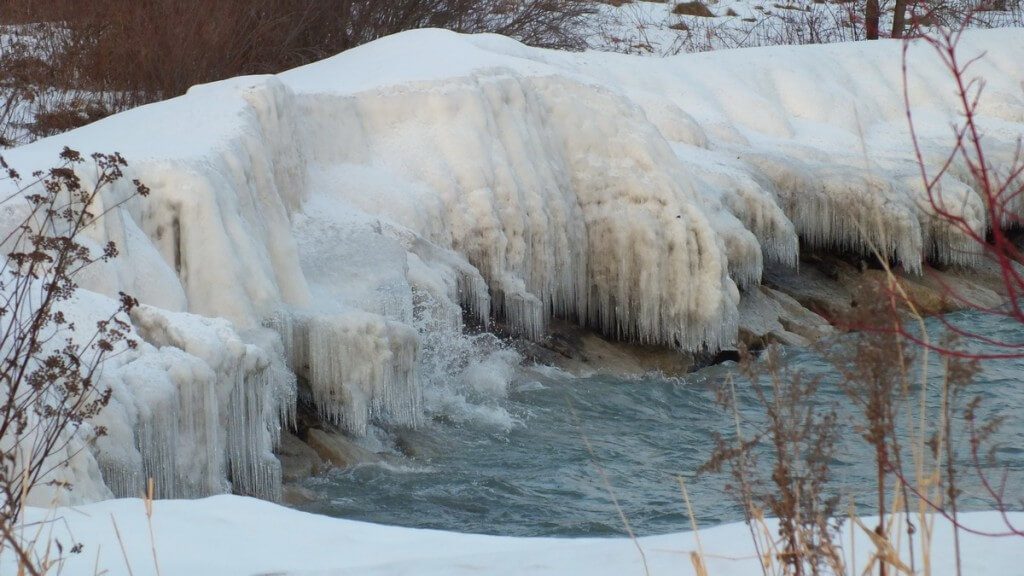
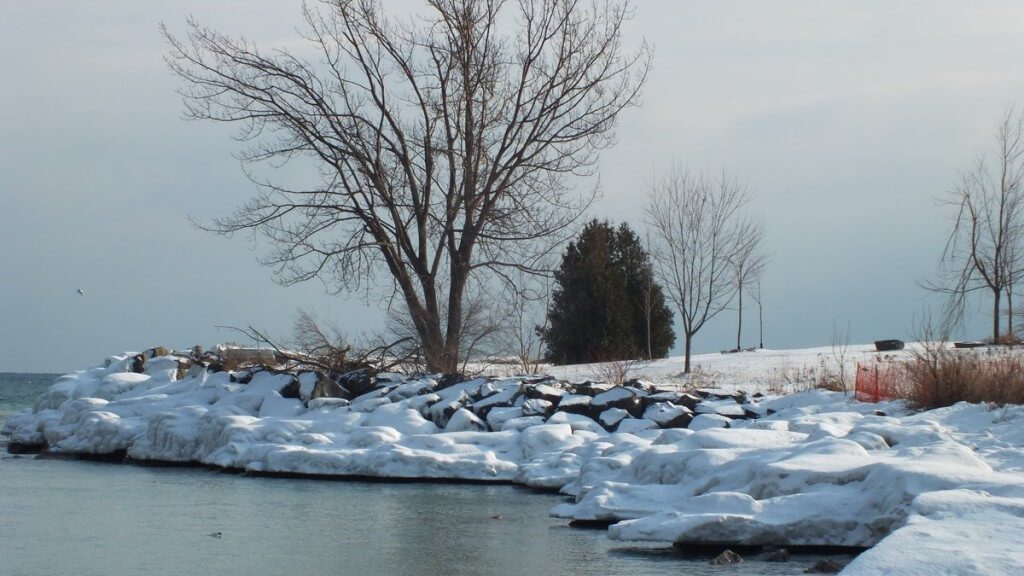
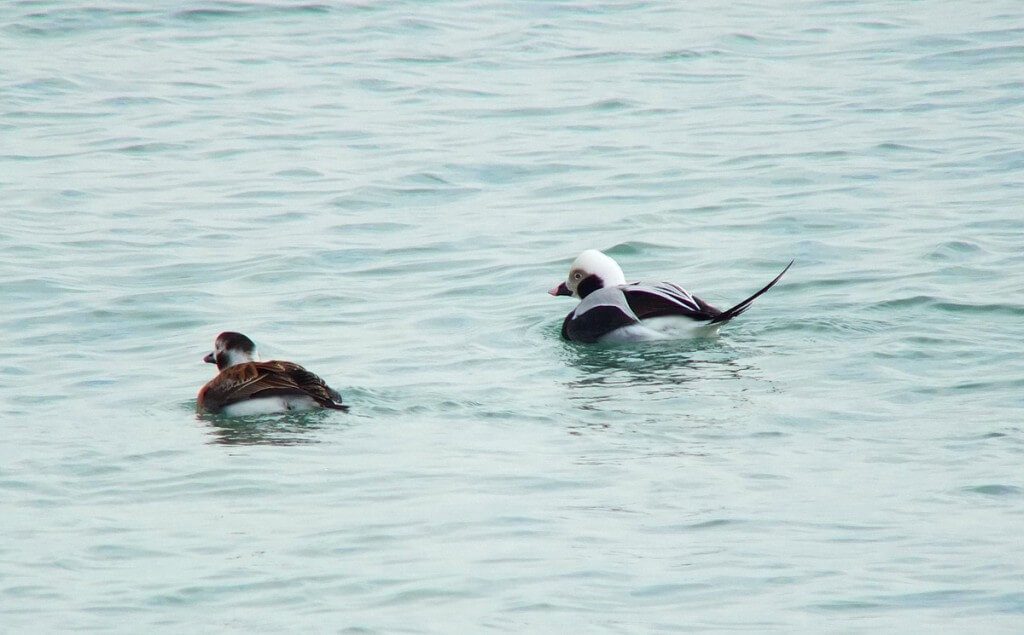
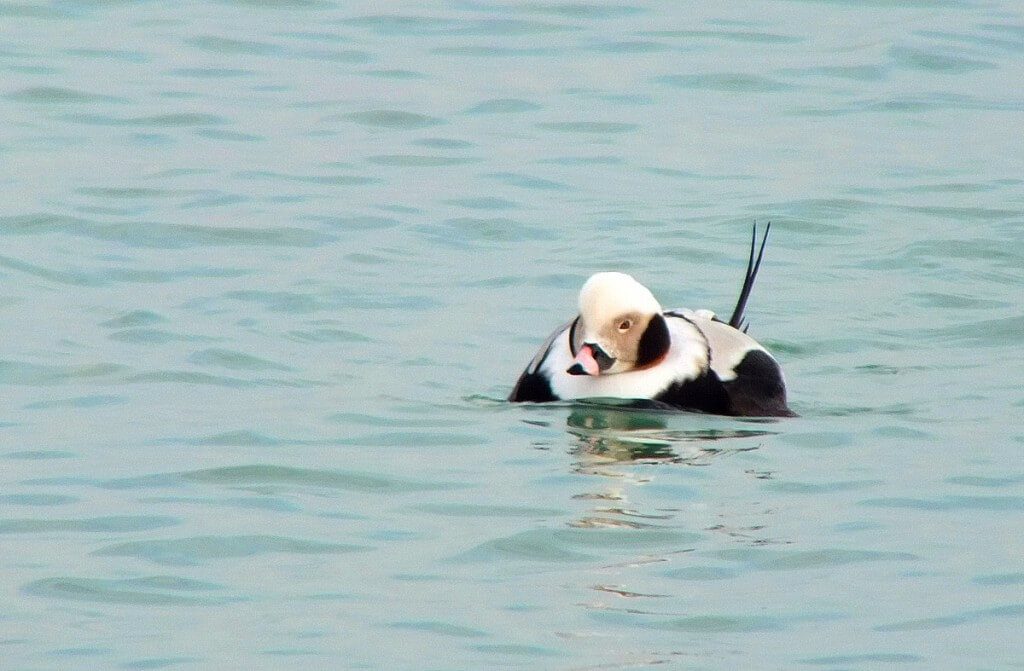
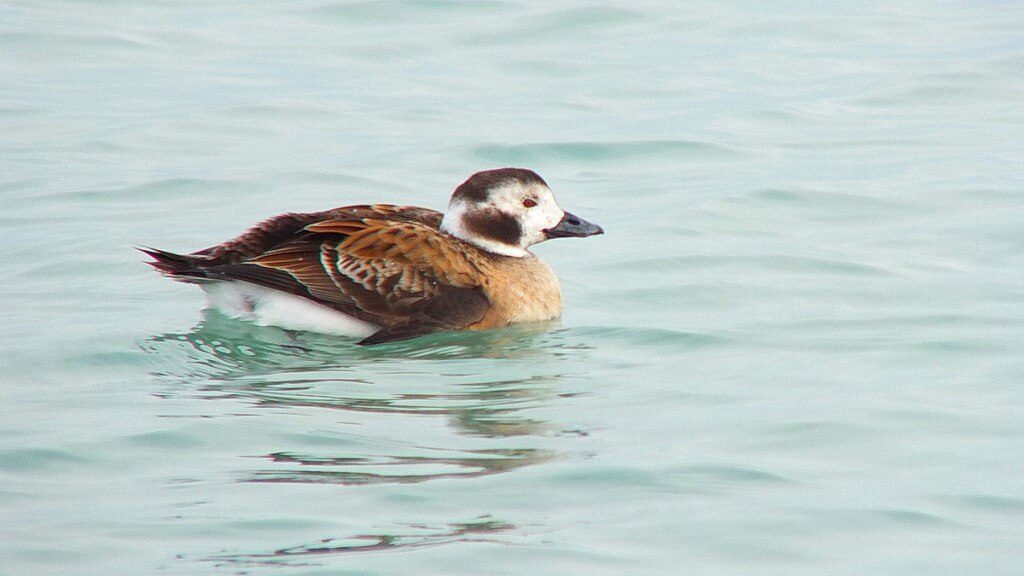
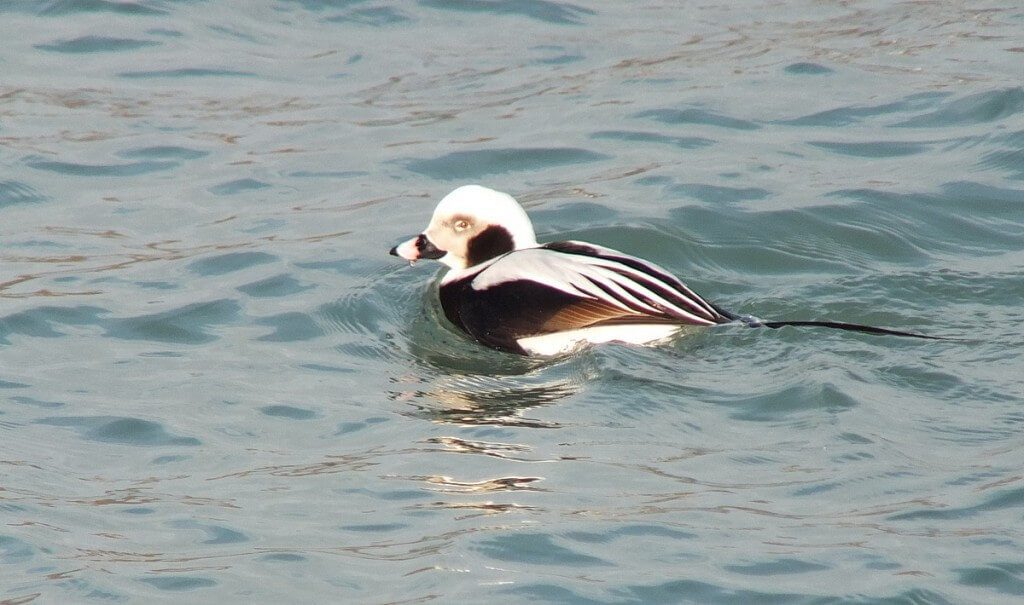
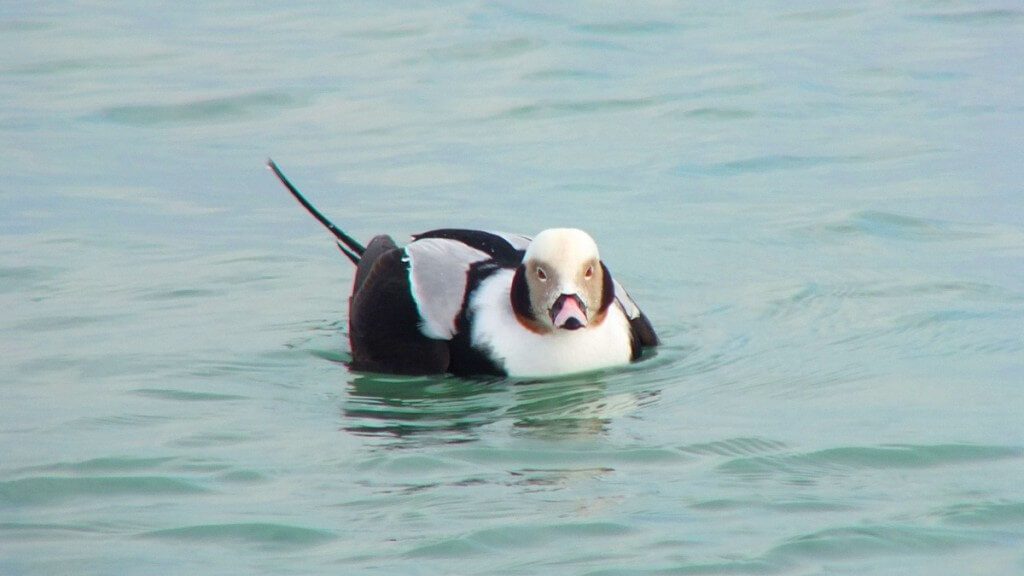
From Facebook:
Adrienne Petterson wrote:
“Gorgeous!”
—————————–
Bob Hilscher replied:
“We saw several of these same ducks in Toronto Harbour this past weekend. They were in the open water at either end of the ferry ride to Ward’s Island. Hope you are lucky enough to spot some of them!”
——————————
Fawn Hoelcle wrote:
“Hope they are still around in two weeks!!!!! Would love love love to see them!!!”
From Facebook:
Sherry Ohlmutz wrote:
“Such a gorgeous duck! Great picture!”
https://www.facebook.com/sherry.ohlmutz